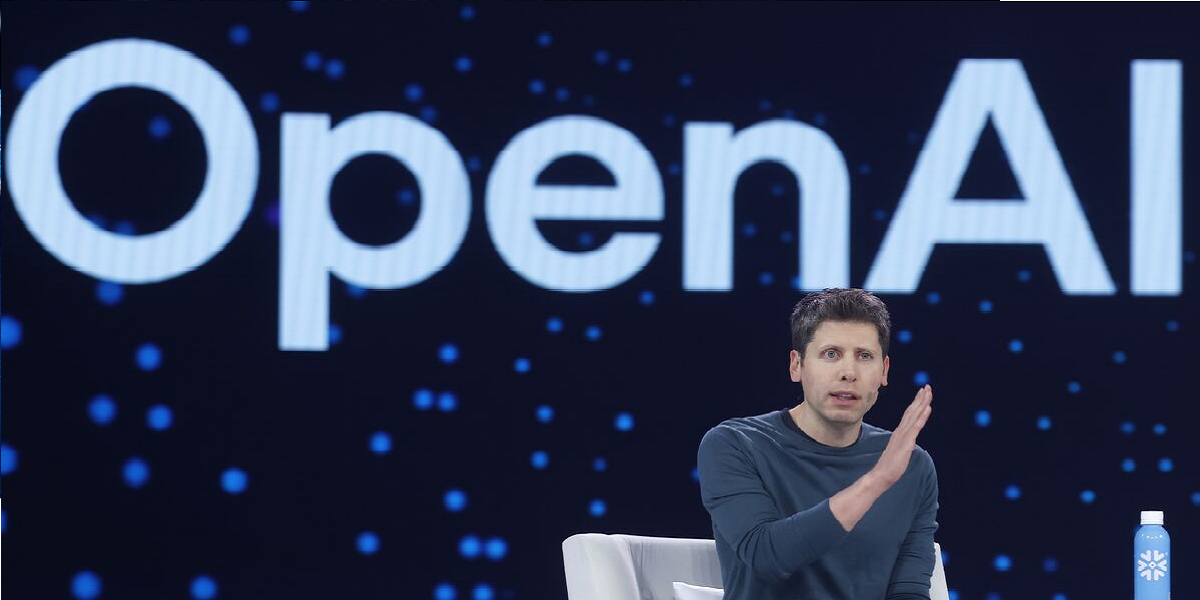OpenAI Rockets to Staggering $500 Billion Valuation, World's Most Valuable Startup?
OpenAI has reportedly become the world's most valuable startup, surpassing companies like SpaceX and ByteDance, following a significant secondary stock sale aimed at retaining its employees. Current and former staff of the ChatGPT maker sold $6.6 billion in shares to a consortium of investors, propelling the privately held artificial intelligence company's valuation to an estimated $500 billion. The investors involved in this substantial transaction included Thrive Capital, Dragoneer Investment Group, and T. Rowe Price, alongside Japanese tech giant SoftBank and the United Arab Emirates’ MGX.
This impressive valuation underscores the high expectations surrounding the future of AI technology and marks a remarkable ascent for OpenAI, which began as a nonprofit research lab in 2015. However, with the San Francisco-based company not yet generating a profit, concerns about a potential 'AI bubble' are amplified. Critics suggest that if the generative AI products developed by OpenAI and its competitors fail to meet the lofty expectations of investors who are pouring billions into research and development, a significant market correction could occur.
OpenAI CEO Sam Altman has addressed these concerns, stating that over the long term, the technology is poised to drive unprecedented economic growth, scientific breakthroughs, improvements in quality of life, and new avenues for creativity. He acknowledged that the industry would experience 'booms and busts,' with periods of overinvestment and underinvestment, but maintained confidence in AI's foundational impact. Altman recently toured a massive data center complex under construction in Abilene, Texas, designed to power the company's advanced AI systems.
In recent weeks, OpenAI has aggressively expanded its business ventures. This includes a partnership with Etsy and Shopify to integrate online shopping capabilities into ChatGPT, and the launch of Sora, a social media application dedicated to generating and sharing AI videos. These initiatives reflect OpenAI's efforts to diversify its offerings and secure its position in the competitive tech landscape.
The company also faces challenges in offering competitive compensation and perks compared to publicly traded tech giants like Meta Platforms, which has been aggressively recruiting elite AI engineers. Furthermore, OpenAI's unique corporate structure, where its $500 billion for-profit subsidiary is technically controlled by the board of its nonprofit entity and bound by its charitable purpose, has attracted scrutiny from regulators, including the attorneys general of California and Delaware.
OpenAI has been forging significant strategic alliances, making deals with Oracle and SoftBank for the 'Stargate' data center venture, and with chipmaker Nvidia, a crucial supplier of specialized AI chips. Concurrently, the company has been reducing its reliance on longtime backer Microsoft. In September, a tentative agreement was reached with Microsoft regarding the future stake of OpenAI's nonprofit in its for-profit corporation, although details remain limited. OpenAI also launched an initiative to provide $50 million in funding to nonprofits, with applications closing on October 8. These grants aim to enhance public understanding of AI, support community-desired AI applications, and foster economic opportunity, aligning with recommendations from an advisory board.
Recommended Articles
Tesla's Market Surge: Q3 Deliveries Skyrocket, Defying Musk Backlash

Tesla Inc. announced a seven percent increase in its third-quarter vehicle deliveries, marking a significant rebound. De...
Starbucks Tech Overhaul: CTO Deb Hall Lefevre Exits Amid Revamp

Starbucks is undergoing a major corporate overhaul, with CTO Deb Hall Lefevre's resignation coinciding with CEO Brian Ni...
OpenAI's Staggering $115 Billion Burn Forecast Raises Eyebrows

OpenAI anticipates a substantial increase in its cash burn, projecting $115 billion by 2029 to power its advanced AI tec...
OpenAI Skyrockets: Becomes World's Most Valuable Startup with Staggering $500 Billion Valuation

OpenAI has reached a staggering $500 billion valuation through a recent secondary share sale, cementing its position as ...
AI Powerhouse Soars: OpenAI's Valuation Rockets to $500 Billion, Overtaking SpaceX

OpenAI, the company behind ChatGPT, has reportedly reached a $500 billion valuation, surpassing Elon Musk's SpaceX. This...
You may also like...
Chelle's Controversial Super Eagles WCQ Squad Shakes Up Football World

Super Eagles Head Coach Eric Chelle has announced a €295.2 million squad for the crucial 2026 FIFA World Cup qualifiers ...
Postecoglou's Forest Nightmare: Manager Faces Axe Amid Pressure Cooker Fixture

Ange Postecoglou, just weeks into his Nottingham Forest tenure, faces growing pressure and fears dismissal after a winle...
Adam Driver & Anne Hathaway Join Forces for Ron Howard's War Drama

Ron Howard is set to direct 'Alone at Dawn,' a new military drama starring Adam Driver and Anne Hathaway, based on the N...
Cillian Murphy Unveils 'Real F***ing Horror' Role & Post-Oppenheimer Journey

Cillian Murphy, following his Oscar win for 'Oppenheimer,' stars in the new Netflix drama 'Steve,' streaming October 3. ...
Taylor Swift's 'Life of a Showgirl' Album: Celeb Reactions & Fan Favorites Revealed!

Taylor Swift's latest album, "The Life of a Showgirl," released on October 3, sparking widespread excitement. Nicki Mina...
Behind the Music: Lola Young's High-Stakes Legal Battle for 'Messy' Royalties

British singer Lola Young is entangled in a severe legal battle with US producer Carter Lang, who claims a share of prof...
Pop Icon Taylor Swift Drops Bombshells on Personal Fears and Travis Kelce Wedding Dreams

Taylor Swift's new album, 'The Life of a Showgirl,' marks a joyful shift to love, revealing her engagement to Travis Kel...
Outrageous Office Worker's Smelly Morning Ritual Stuns Commuters!

A man caused a stir on a Thameslink train when he brought a microwave to heat noodles during his morning commute, baffli...